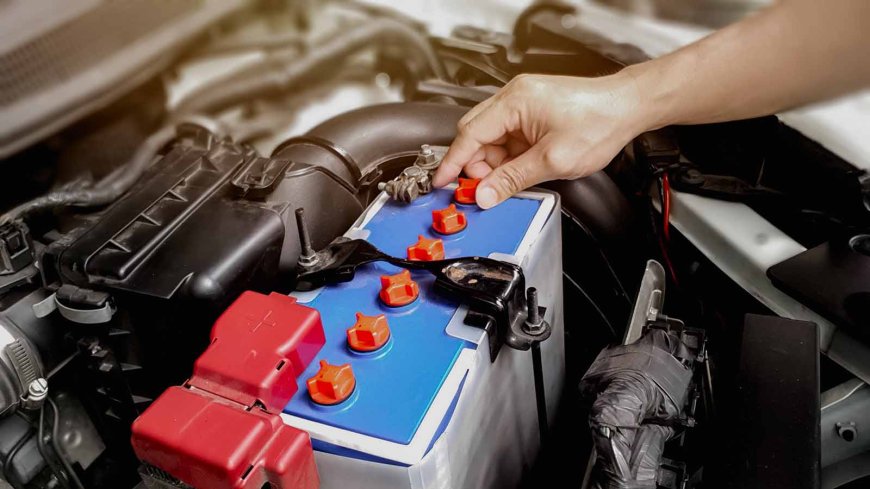What to Do If Your Car Overheats in Summer Traffic
When temperatures are record-high, motorists need to be cautious about the effects extreme heat can have on their vehicles.

A car can overheat in summer more frequently due to increased engine load and environmental stress. Follow our Sacramento car accident attorney’s tips to prevent breakdowns and traffic accidents:
1. Check Your Battery
Car batteries can be damaged during extreme heat, as constant heat and vibration can cause the battery to suffer an internal breakdown and eventually lead to failure. Although hot weather is unavoidable, you can protect your battery by making sure it is securely attached to prevent vibration.
Battery fluid also evaporates faster when exposed to high temperatures, leading to corrosion on terminals and connections. To prevent this, clean any corrosive substances on the battery terminals and cable clamps. This will ensure the clamps are tight enough to prevent movement.
Any battery that is three or more years old should also be tested by an auto technician to determine how much longer it is expected to last.

2. Maintain Your Vehicle’s Cooling System
Engine overheating causes major issues during the hotter months, and your vehicle’s cooling system is the first line of defense. For this reason, have a technician check your cooling system to ensure it can protect your engine from overheating.
Neglecting the cooling system can cause wear and corrosion on your engine, eventually leading to long-term damage. Rubber cooling system parts, like hoses and belts, can also deteriorate when exposed to heat. Have them inspected for cracking, soft spots, or signs of wear. Worn parts have a higher chance of failure in hot conditions and should be replaced.

3. Avoid Driving on Excessively Hot Roads
As temperatures soar, so does road surface heat. This can increase the risk of tire blowouts. Under-inflated tires are especially at risk because they flex more, generating heat that can lead to failure.
Before summer driving, check your tire pressure and inspect for signs of uneven wear or damage. This is especially important as suspension or alignment issues may also contribute to the problem and increase your risk in summer traffic.

4. Make Sure Your Vehicle Has Plenty of Fluids
One of the most overlooked engine overheating is low or evaporated fluids. Engine coolant overtemperature is often the result of insufficient coolant or compromised fluid systems.
You should regularly check and top off all of your vehicle’s fluids, including:
-
Motor oil
-
Transmission fluid
-
Power steering fluid
-
Brake fluid
These fluids lubricate essential components and help manage temperature. If they run low, overheating becomes a real risk.

5. Maintain Your Vehicle’s Air Conditioning System
While air conditioning may not directly prevent your engine from overheating, it plays a critical role in keeping passengers safe from heat stroke and dehydration.
Make sure your A/C is blowing cold and operating properly. If not, it might be low on refrigerant or need a filter replacement. Many newer vehicles also include a cabin filter to block debris and ensure airflow. Have it checked and replaced if needed.

6. Be Prepared for Breakdowns
Even a well-maintained car can overheat during a severe heatwave. Be ready with an emergency kit that includes:
-
Water and non-perishable snacks
-
Jumper cables
-
Flashlight with extra batteries
-
Road flares or an emergency beacon
-
Basic hand tools
-
First aid kit
Also, ensure you have a spare tire and the necessary tools for a quick tire change. Knowing what to do in an emergency can prevent minor issues from becoming dangerous situations.

Conclusion
A car overheats due to outside temperature alone when combined with other factors like low coolant levels or poor vehicle maintenance, the risk increases dramatically. Understanding what the causes of a car overheating are and preparing accordingly can save you from unexpected breakdowns. This summer, take proactive steps to protect your car, your passengers, and yourself from extreme heat. Stay safe, stay cool, and keep your engine running smoothly.
FAQs
1. What are the most common causes of a car overheating in hot weather?
Common causes include low coolant levels, a broken thermostat, a failing water pump, or a damaged radiator fan. In summer, extra heat puts stress on the cooling system, making small issues more likely to trigger overheating.
2. Can I keep driving if my engine temperature warning light turns on?
No. Continuing to drive with an overheating engine can cause severe damage such as a blown head gasket or warped cylinder head. Pull over safely, turn off the engine, and let it cool down before checking the coolant level.
3. How can I prevent my car from overheating during summer road trips?
Regular maintenance helps most. Check coolant and oil levels, inspect belts and hoses, and clean debris from the radiator. When stuck in traffic, use the heater to draw heat away from the engine if the temperature gauge climbs.
4. Is it safe to open the radiator cap when my engine is overheating?
Never open the radiator cap on a hot engine. Pressure inside the system can cause boiling coolant to spray out and cause burns. Wait at least 30 minutes until the engine cools down before carefully opening it with a cloth.
5. What should I do if my car frequently overheats even after adding coolant?
Frequent overheating may point to deeper problems like a clogged radiator, faulty thermostat, or head gasket failure. Have a mechanic run a pressure test and cooling system inspection to identify and fix the root cause.

 Sana Irshad
Sana Irshad